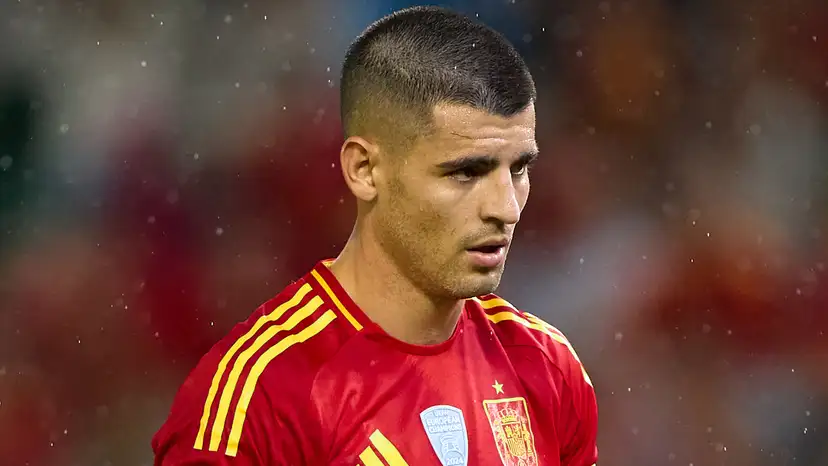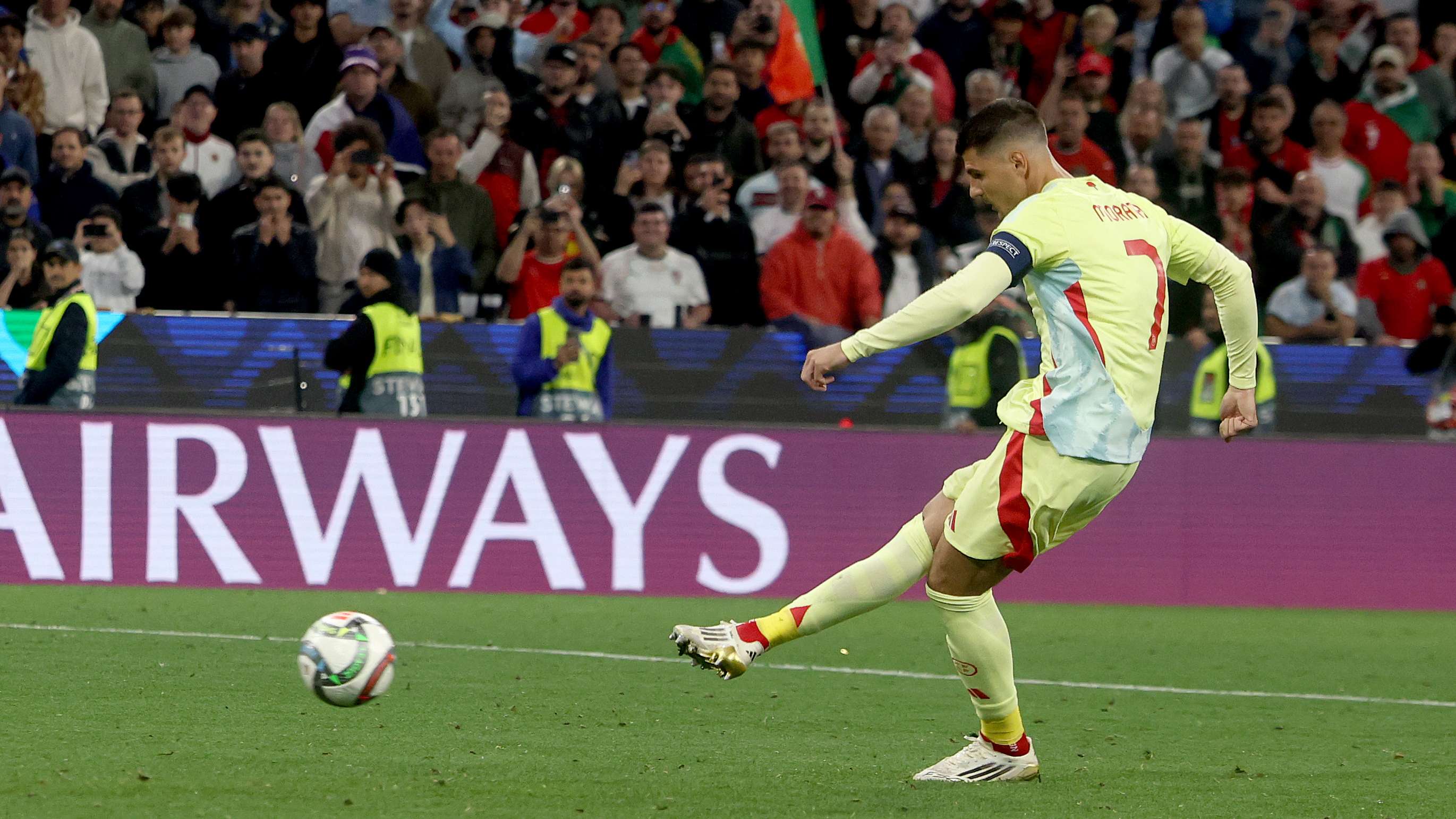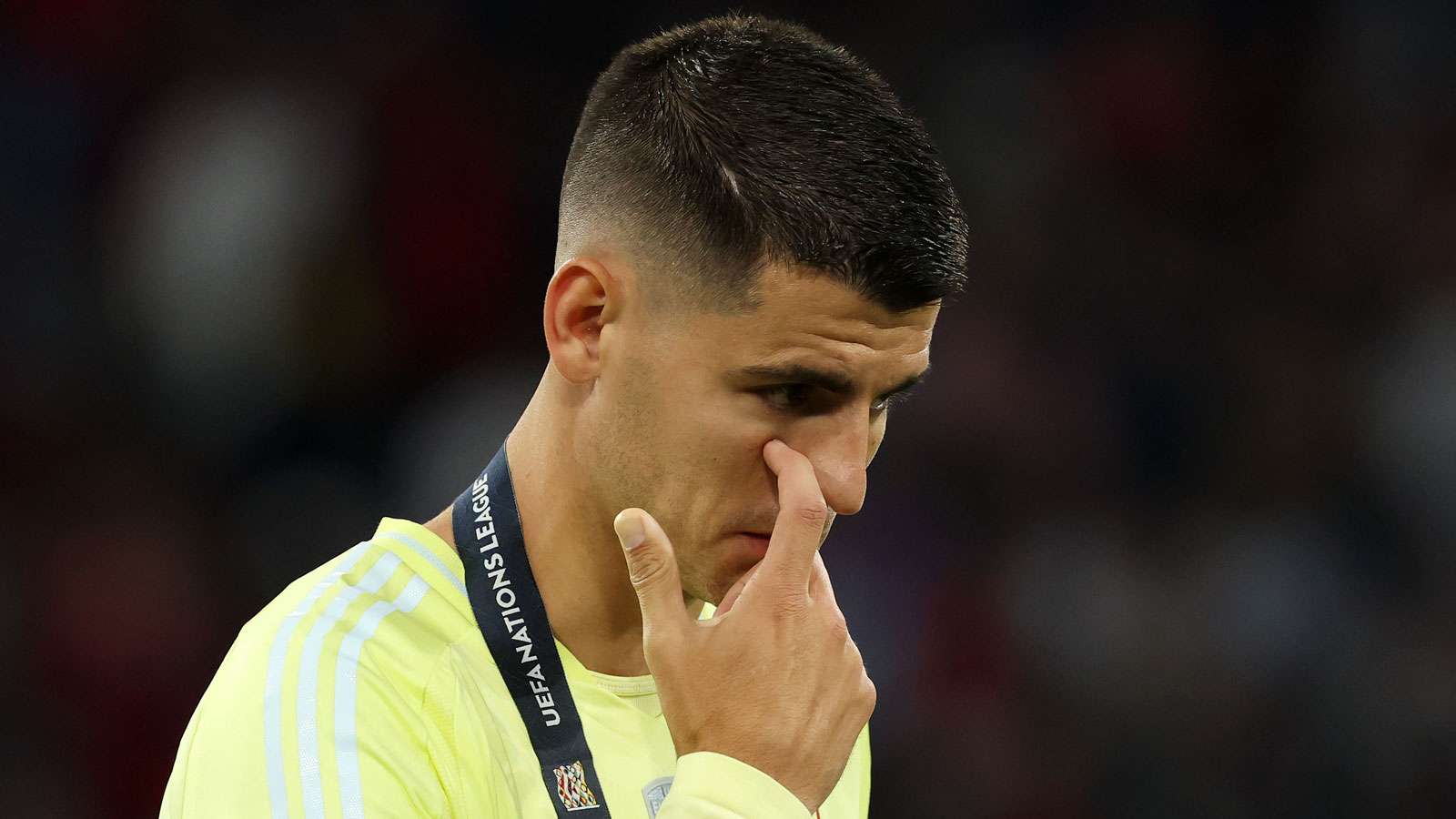
Alvaro Morata Questions Spain Future After Abuse: “It’s Not Worth It”
After Portugal Miss and Fan Backlash, Spain Captain Opens Up About Mental Struggles
Alvaro Morata, one of the most polarising figures in Spanish football over the past decade, is once again at a crossroads. The Spain captain, now 32, has hinted at a possible retirement from international football after missing a crucial penalty in the UEFA Nations League final defeat to Portugal earlier this month—a miss that has triggered a storm of criticism and abuse, both online and in stadiums.
Speaking candidly in his new Movistar Plus documentary, Morata: They Don’t Know Who I Am, the Atletico Madrid striker pulls no punches in discussing the mental toll years of public ridicule have taken on him. He admits he is questioning whether continuing with the national team is worth it when the price is endless mockery, jeers, and even threats.
“Is It Worth It?” – Morata Opens Up on Hostile Treatment

What makes Morata’s reflection
The key moment of the film—and indeed of this stage of Morata’s career—comes when the veteran forward ponders aloud whether it’s worth returning to the Spain setup if it only brings him more negativity.
“Is it worth it that every time I go to Spain with my family, I have unpleasant experiences and people mock you, insult you, and laugh at you?” he asks in the documentary. “I don’t know if it’s worth it. Is it worth it to keep coming to the national team only to be insulted and whistled at in the stadiums where you play wearing the national team jersey? It’s not worth it.”
These are not the words of a man seeking attention. They are the words of someone deeply hurt, disillusioned, and questioning whether the burden of leading his national team outweighs the pride that once came with it.
Mental Health Battles in the Shadows
What makes Morata’s reflection even more poignant is the revelation that he’s been battling inner demons for years. The documentary offers a rare look into the striker’s mental health journey, revealing that he suffered from depression in the lead-up to Euro 2024 and even contemplated faking an injury to avoid representing his country.
In a footballing world that still too often undervalues mental well-being, Morata’s admission of anxiety attacks and emotional exhaustion is both brave and eye-opening. He is not just talking about the pressure of a missed penalty. He’s talking about a long pattern of emotional toll—of being the lightning rod whenever Spain falters.
It’s worth noting that this isn’t the first time Morata has faced severe backlash. During Euro 2020, after missing chances against Poland, he received death threats on social media—some even aimed at his children. “I did not sleep for nine hours that night,” he revealed at the time. Sadly, the pattern has repeated itself after the Portugal game, with online vitriol once again directed at him and his family.
Spain’s Fan Problem: More Than Booing

Alvaro Morata
This isn’t just about one player. Morata’s experiences are a symptom of a wider problem: the growing disconnect between national players and a portion of Spain’s fanbase. Whistles and jeers at home matches have become all too familiar, to the point where head coach Luis de la Fuente publicly condemned the behaviour after a friendly against Brazil in 2024.
“I was hurt by the fans’ treatment of Alvaro,” De la Fuente said then, visibly emotional during the press conference. “He gives everything for the shirt. He doesn’t deserve this.”
And he doesn’t. Morata has always been an honest, hard-working forward. He’s not flashy or controversial. He doesn’t seek headlines or drama. But despite leading Spain in goals across multiple tournaments and playing for top clubs like Real Madrid, Juventus, Chelsea, and Atletico, he’s never quite been embraced by the wider Spanish public.
A Fork in the Road: What’s Next for Morata?
What comes next is uncertain. The 2026 FIFA World Cup is still on the horizon, and Morata would be a natural leader for a team transitioning into a new era. Luis de la Fuente was able to talk him into leading the line at Euro 2024, where Spain won the tournament. Whether he can do so again is up in the air.
Morata’s form at club level will no doubt influence his decision. He remains an integral part of Diego Simeone’s Atletico Madrid, even if his playing time has fluctuated. Monaco and clubs in Serie A have reportedly shown interest as well. But it’s the emotional and psychological battle—not the physical one—that may ultimately decide whether Morata walks away from international duty for good.
The Bigger Picture: Players, Pressure and Public Perception
Morata’s case forces us to ask uncomfortable questions about how we treat our heroes. Why are footballers expected to perform like machines but react like saints when they are booed by their own fans? Why does one mistake erase a dozen moments of triumph?
It also highlights how damaging social media can be. In the digital age, criticism isn’t confined to post-match newspaper columns. It comes as a torrent—instant, cruel, and often anonymous. For players like Morata, who carry themselves with humility and dignity, the mental toll can be crushing.
Closing Thoughts: A Career That Deserves More Respect
Alvaro Morata may not go down as Spain’s greatest-ever striker. He’s not David Villa or Fernando Torres. But he has delivered again and again when his country needed him—whether scoring in knockout rounds, leading the line through transition phases, or mentoring younger players.
If he chooses to step away, it won’t be out of petulance. It’ll be out of self-preservation. Because no professional athlete, no matter how thick-skinned, should have to ask whether the jeers of their own people make the honour of wearing the national team shirt not worth it.
If this is the end of Morata’s journey with La Roja, we can only hope he finds peace away from the pitch. And if he decides to fight on, then perhaps it’s time the fans meet him with the respect—and support—he’s always deserved.




























There are no comments yet. Be the first to comment!